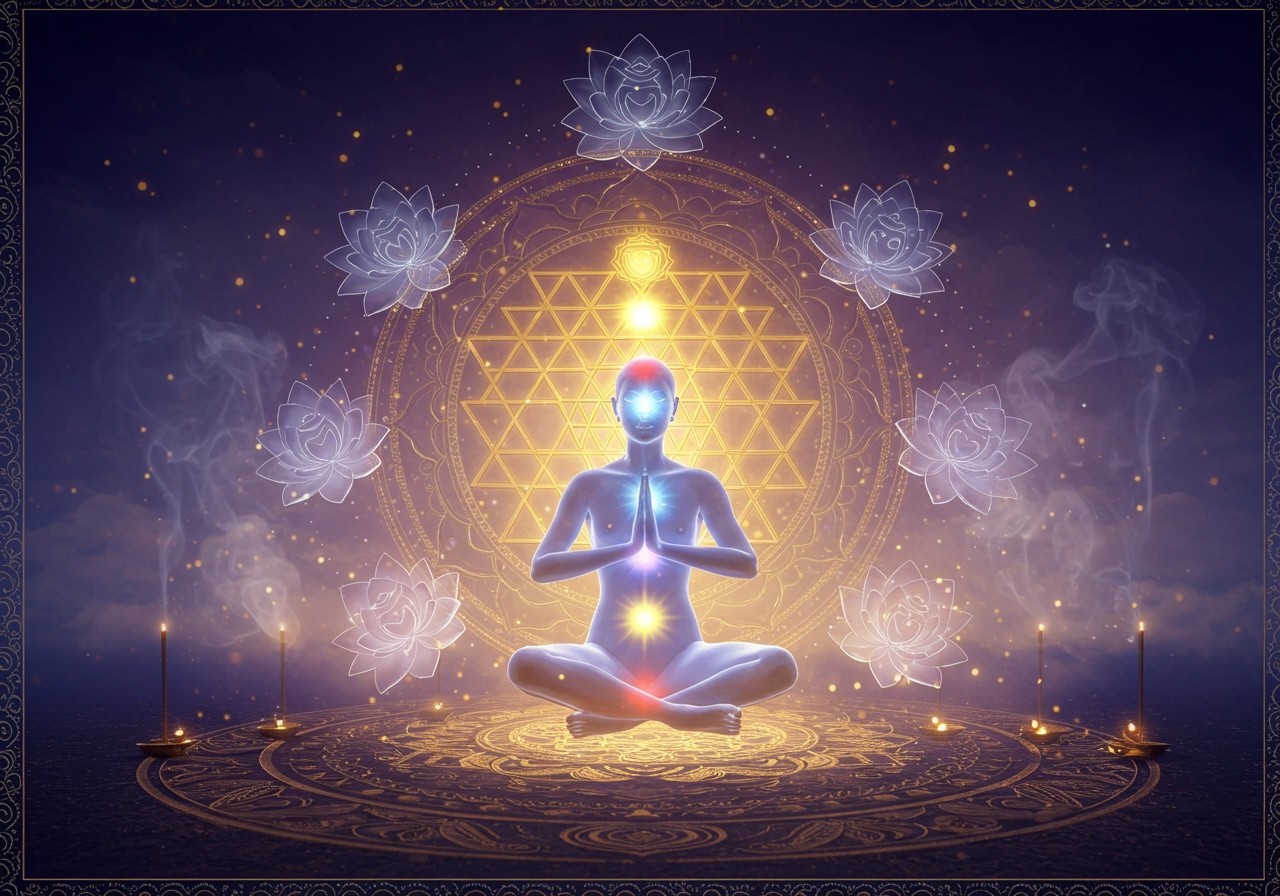Delving into the Essence of Yoga Philosophy

Yoga philosophy, originating in ancient India, is more than just physical postures; it’s a profound system for achieving harmony between mind, body, and spirit. Rooted in Hinduism, the word “yoga” itself comes from the Sanskrit “yuj,” meaning “to unite” or “to join.” This union is at the heart of yoga’s teachings, emphasizing the interconnectedness of all things. For a deeper understanding of Hindu philosophy, explore our resources on Hindu Philosophy and Hindu Symbols.
Core Principles of Yoga Philosophy
- Unity/Oneness: This principle emphasizes the interconnectedness of everything in the universe, fostering awareness and compassion for all beings. Recognizing this interconnected web encourages us to live in harmony with ourselves and the world around us.
- Mind-Body Connection: Yoga philosophy acknowledges the profound interplay between mind and body. Imbalance in one inevitably affects the other, highlighting the need for holistic well-being. Discover techniques for finding inner calm with our guide on meditation for beginners.
- Self-Discipline: This principle is the cornerstone of personal growth and self-realization. It empowers individuals to cultivate inner strength, resilience, and a deeper understanding of themselves. Through self-discipline, we navigate the path towards a more meaningful existence.
Key Concepts in Yoga Philosophy
- The Eight Limbs of Yoga: These limbs provide a framework for living a purposeful life. They encompass ethical considerations (Yamas and Niyamas), physical postures (asanas), breath control (pranayama), sense withdrawal (Pratyahara), focused concentration (Dharana), meditation (Dhyana), and enlightenment (Samadhi). Learn more about the harmonious connection between yoga and spirituality in our dedicated blog post Yoga and Spirituality.
- Karma: This concept emphasizes that every action has consequences, shaping future experiences. It encourages personal responsibility and mindfulness in our thoughts, words, and deeds. Understanding karma allows us to make conscious choices that align with our values.
- Reincarnation: This belief posits that the soul undergoes a cycle of birth, death, and rebirth until liberation (moksha) is achieved. This continuous journey offers opportunities for growth, learning, and ultimately, the realization of our true nature.
Practical Applications of Yoga Philosophy
- Asanas (Physical Postures): Asanas not only strengthen and align the body but also prepare it for deeper spiritual practice. They cultivate self-awareness and create a sense of groundedness, essential for inner exploration.
- Pranayama (Breath Control): Breathwork regulates energy flow, promoting calmness and balance within. It is a powerful tool for managing stress, enhancing focus, and connecting with the present moment.
- Meditation: Meditation sharpens the mind and fosters deeper self-reflection. It cultivates stillness, allowing for greater clarity and insight into our inner world. Regular meditation practices can lead to profound personal transformation.
- Mindfulness: Being fully present in each moment reduces anxiety and improves mental clarity. It cultivates a deeper appreciation for life’s experiences, fostering a sense of peace and contentment.
The Self in Yoga Philosophy
Yoga delves into the nature of the self, recognizing the interconnectedness of the physical body, mind, emotions, and spirit. The ultimate goal is to realize the true self (Atman), transcending the limitations of the ego. This realization leads to a profound sense of liberation and inner peace.
Elevating Your Practice with Poojn.in
Enhance your yoga and meditation journey with authentic products from Poojn.in. Explore our selection of Pooja Samagri, including clay items and Dashakarma items. Create a serene space with a marble dust Adiyogi murti, or find inspiration with a Lord Shiva murti. For larger murtis, consider the standing Shiva murti or the Ganga Shiva murti.
Historical Context of Yoga Philosophy
Yoga’s roots trace back to ancient India, with Patanjali’s Yoga Sutras, written between 4-5 CE, serving as a foundational text. These sutras provide a comprehensive framework for understanding and practicing yoga, offering profound insights into the human condition and the path to liberation. They continue to inspire and guide practitioners to this day.


